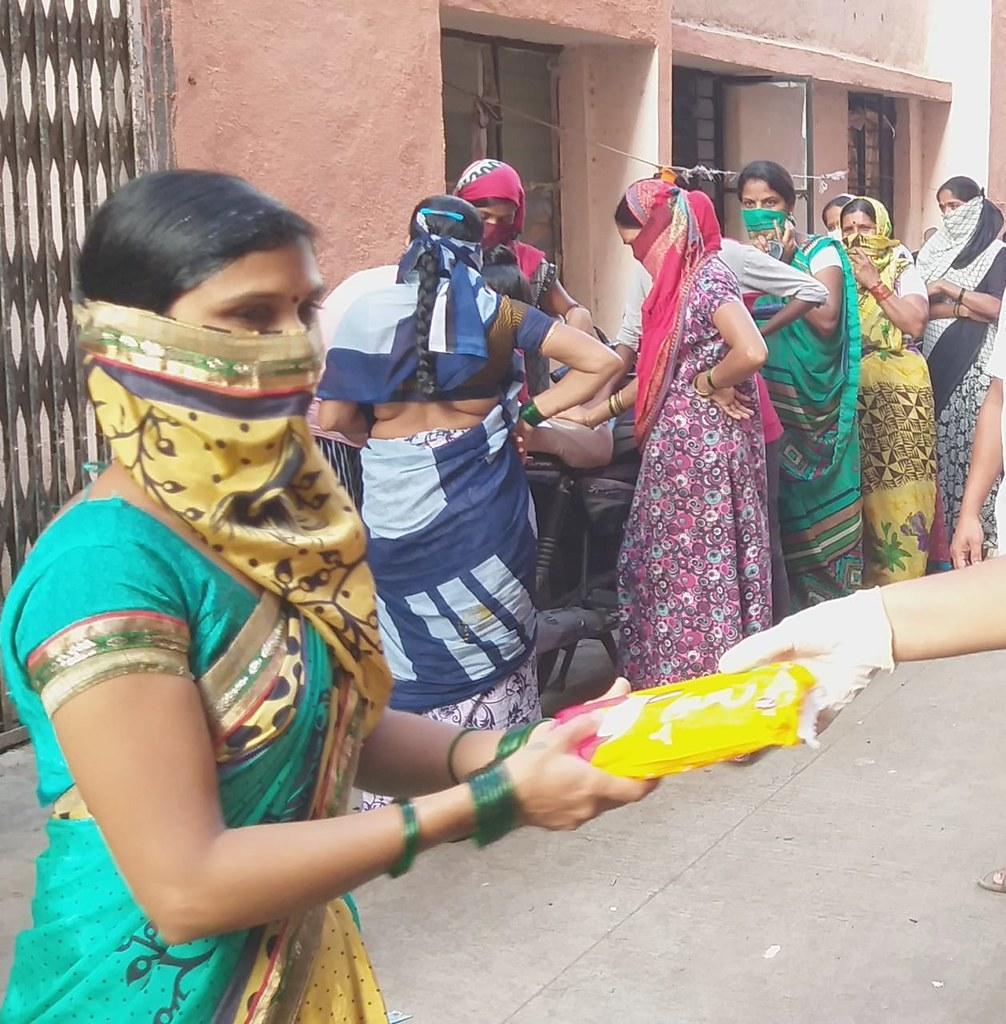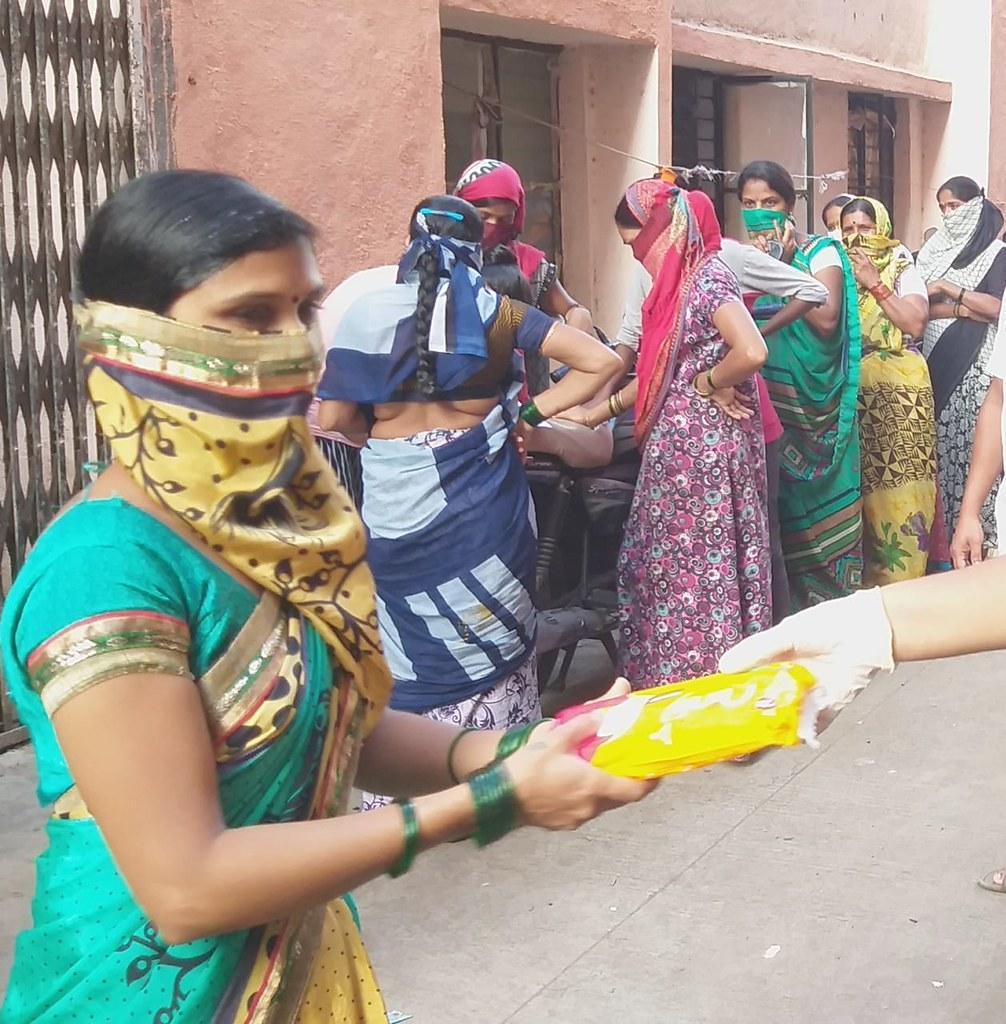
In March 2021, India witnessed the start of a horrific second wave of COVID-19 which soon became “world news”. The second wave spread at a pace few imagined and brought an already weak health system to shambles, leaving thousands dead within days. Along with the tragedy of a disease outbreak, essential health services including women’s health suffered significantly. On the occasion of World Menstrual Hygiene Day (28th May), we intend to reflect on menstrual health in India over the past pandemic year.
Menstrual health is a chronic health and social challenge in India. Many girls and women do not have access to adequate and reliable information on menstruation, nor access to menstrual hygiene products. In addition, menstruation often brings stigma and various forms of ostracization with it which may also often result in stress and anxiety.
During health and natural emergencies, menstrual health becomes an even bigger challenge and source of mental anguish, in terms of access and availability of hygiene products, and access to toilets, water, and appropriate sanitation. Many menstrual health failures were already flagged during the first wave of the COVID-19 outbreak in India, like excluding sanitary items from the initial essential items list, and challenges in reaching young girls for distribution of information and sanitary supplies, given the closure of schools. Unfortunately, the recommendations to address these challenges failed to materialize. No significant steps were taken to provide for the basic menstrual needs of ~355 million women and girls in the country, and as the much more severe second wave hit India, the situation is thus largely similar to the one in the first wave. Bad, that is.
The pandemic also had an indirect (secondary) impact on menstrual health. Indeed, while the primary impact of the COVID-19 pandemic has been shared by men and women, the secondary effects of COVID-19 have been borne disproportionately by women and girls, in turn impacting menstrual health for many. Closure of schools, loss of livelihoods, lack of safe spaces and essential services, due to lockdowns, led to an increased burden of care responsibilities at home, and restricted mobility for women and girls. This exposed many of them to higher levels of gender-based violence and also triggered more early marriages and unwanted pregnancies, and school dropouts. As a result, many women and girls may have had increased levels of stress and anxiety, which conversely would have an impact on their health, including their menstrual health.
What about menstrual health on the political agenda? With relatively few women and even fewer male allies within the policy and decision-making spaces, it is no surprise to see menstrual health as a public health neglected area of concern. Only a handful of instances to bring policy attention to menstrual health and break the taboos around it are seen. A few recent examples: Andhra Pradesh’s Chief Minister, YS Jagan Mohan Reddy, announced free distribution of sanitary pads to students of class 7-12 in government schools on the occasion of International Women’s Day 2021. Around the same time, PM Modi announced that sanitary pads would be available for women at Rs 2.5 as part of the Janaushadhi Pariyojana Scheme. It is important to note that the focus of these and many other such schemes announced for the distribution of sanitary pads, is often limited to school girls, thereby excluding other vulnerable girls and women in their reproductive age. Further, with the closure of the schools, community health workers such as the ASHAs were redirected to pandemic-related responsibilities. This affected the supply of sanitary items for school girls. While these sanitary pads distribution schemes are appreciated, there is a strong need to bring in interventions to expand the knowledge of women on varied types of sanitary items, their usage, environmental impact, and boost their agency to choose as per their preference. These interventions need to be integrated with concerted efforts to change the stigmatized behavioural practices at the community level, which are often filled with taboos and myths built around menstruation.
More recently, just a few days after the announcement by the Government of India that it would scale up the vaccination for people aged 18+, several women across the nation already started raising concerns about taking the vaccine during menstruation, claiming it to be unsafe during the periods. While these arguments and social media-driven narratives are to some extent based on limited information, or “fake news”, they also display deeply internalized patriarchal norms and restrictions for menstruators, which still dominate our society (the norms, not the menstruators 😊). While efforts are being made by the Ministry of Health and Family Welfare (MoHFW) and other Ministries to increase awareness on the virus and vaccination, there is little emphasis on busting myths around vaccination for menstruating women.
While the larger narrative around menstrual hygiene has been limited to the distribution of pads – which comes with its own share of concerns including pad size, absorption capacity, disposal mechanism, and environmental impact – it misses out the larger context within which communities fail to adopt sustainable menstruation ( i.e. switching to environmental friendly menstrual products) and continue with tabooed practices driven by regressive social and patriarchal norms.
Policies thus need to be more holistic. They should bust old regressive myths and taboos around menstruation and prevent new ones from forming, while the distribution of sanitary items to the menstruators obviously remains essential too.
Our political leaders have a huge responsibility and also the power to potentially bring about a sea change in how menstrual health is integrated into the public health policy agenda!
